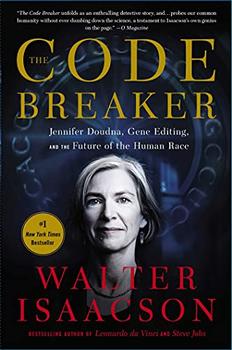Summary | Excerpt | Reviews | Beyond the book | Read-Alikes | Genres & Themes | Author Bio

How Humans Discovered the Microcosmos, Defeated Germs--and May Still Lose the War Against Infectious Disease
by Thomas LevensonThe centuries-long quest to discover the critical role of germs in disease reveals as much about human reasoning—and the pitfalls of ego—as it does about microbes.
Two out of three soldiers who perished in the Civil War died of infected wounds, typhoid, and other infectious diseases. But no doctor truly understood what was happening to their patients. Twenty years later, the outcome might have been different following one of the most radical intellectual transformations in the history of the world: germ theory, the recognition that the tiniest forms of life have been humankind's greatest killers. It was a discovery centuries in the making that transformed modern life and public health.
This revolution has a pre-history. In the late-sixteenth century, scientists and hobbyists used the first microscopes to confirm the existence of living things invisible to the human eye. So why did it take two centuries to make the connection between microbes and disease? As Thomas Levenson reveals in this globe-trotting history, the answer has everything to do with how we see ourselves. For centuries, people in the west, believing themselves to hold God-given dominion over nature, thought too much of humanity and too little of microbes to believe they could take us down. When scientists finally made the connection by the end of the 19th-century, life-saving methods to control infections and contain outbreaks soon followed. The next big break came with the birth of the antibiotic era in the 1930s. And yet, less than a century later, the promise of the antibiotic revolution is already receding from years of overuse. Why?
In So Very Small, Thomas Levenson follows the thread of human ingenuity and hubris across centuries—along the way peering into microscopes, spelunking down sewers, traipsing across the battlefield, and more—to show how we came to understand the microbial environment and how little we understand ourselves. He traces how and why ideas are pursued, accepted, or ignored—and hence how human habits of mind can, so often, make it terribly hard to ask the right questions.
With So Very Small, his latest in a string of popular histories of science, Thomas Levenson attempts to educate the rest of us in how good we have things today. The book centers on the history of germ theory, tracing a centuries-long struggle to understand the microscopic lifeforms (bacteria and viruses) that were for so long the unknown root of so much of humanity's suffering. His focus is the story and, author of half a dozen history books, he is an experienced and gifted storyteller. He may hold the title of Professor of Science Writing at MIT, but he comes across more like an eager high school teacher with an infectious enthusiasm for his chosen subject. His narration—dotted with exclamation points and "can-you-believe-that?" asides to his reader—ensures the story clips along at a reasonable place, while still reveling in moments of grisly melodrama...continued
Full Review
 (810 words)
(810 words)
(Reviewed by Alex Russell).
Thomas Levenson begins So Very Small, his history of the development of germ theory, with an account of the Great Plague that struck London in 1665. Although this was the last major outbreak to hit England, Yersinia pestis, the bacterium which causes bubonic and pneumonic plague, has survived—and indeed thrived—well into the 21st century. As recently as 2010, the National Institutes of Health claimed that, thanks to a proliferation of trade routes across the globe, the "plague is more widespread today than it has ever been."

Thankfully, these days plague bacteria mostly limit themselves to the world's rodent population. As Levenson describes, modern sanitation and hygiene practices have ensured that the ...

If you liked So Very Small, try these:

by Walter Isaacson
Published 2022
Winner of the 2021 BookBrowse Nonfiction Award
The bestselling author of Leonardo da Vinci and Steve Jobs returns with a gripping account of how Nobel Prize winner Jennifer Doudna and her colleagues launched a revolution that will allow us to cure diseases, fend off viruses, and have healthier babies.

by Richard Fortey
Published 2005
A fascinating geological exploration of the earth's distant history as revealed by its natural wonders.